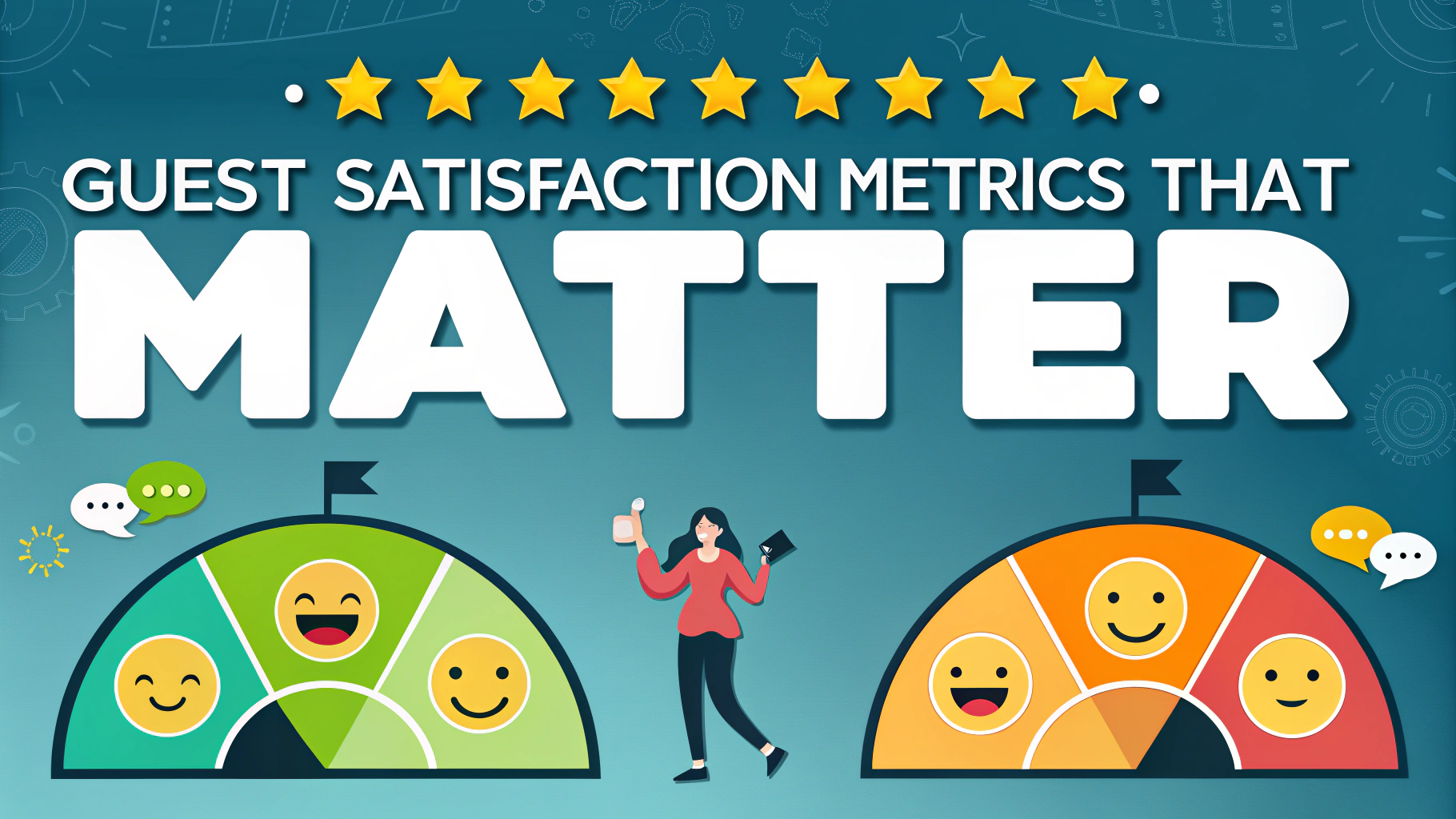Revenue management helps independent hotels maximize profits by adjusting room rates based on demand, market conditions, and booking patterns.
Small hotels often struggle with implementing effective revenue strategies due to limited resources and complex market dynamics.
This guide breaks down revenue management into practical steps that independent hoteliers can implement immediately to boost their bottom line.
Understanding Revenue Management Basics
Revenue management is the practice of selling the right room to the right guest at the right time for the right price.
- Monitor market demand and competitors’ rates
- Analyze historical booking data
- Adjust prices based on occupancy levels
- Track booking patterns and guest segments
Essential Revenue Metrics to Track
- RevPAR (Revenue Per Available Room): Total room revenue divided by total available rooms
- ADR (Average Daily Rate): Total room revenue divided by rooms sold
- Occupancy Rate: Percentage of occupied rooms versus total available rooms
- Length of Stay (LOS): Average duration of guest stays
Pricing Strategies That Work
Dynamic pricing allows hotels to maximize revenue by adjusting rates based on real-time market conditions.
- Set base rates for different seasons
- Create special packages for low-demand periods
- Implement minimum stay requirements during peak times
- Use early booking discounts to secure advance reservations
Distribution Channel Management
Smart channel management ensures optimal room distribution while controlling costs.
- Direct bookings through hotel website (lowest commission costs)
- Online Travel Agencies (OTAs) like Booking.com and Expedia
- Global Distribution Systems (GDS) for business travelers
- Metasearch engines like Google Hotel Ads
Recommended Revenue Management Tools
- Atomize: Automated pricing and revenue optimization
- RateGain: Rate shopping and channel management
- IDeaS: Revenue management system for small hotels
- Duetto: Cloud-based revenue strategy platform
Handling Seasonal Fluctuations
Create targeted promotions for off-peak seasons to maintain steady occupancy levels.
- Package deals with local attractions
- Special rates for corporate clients
- Weekend getaway promotions
- Extended stay discounts
Building a Revenue Management Calendar
| Timeframe | Actions |
|---|---|
| Daily | Monitor competitor rates, adjust prices |
| Weekly | Review booking pace, analyze channel performance |
| Monthly | Evaluate strategy effectiveness, plan promotions |
| Quarterly | Review market trends, update annual forecast |
Taking Action: Next Steps for Success
Start implementing these revenue management strategies gradually, measuring results as you go.
- Choose one revenue management tool to implement
- Set up regular competitor rate monitoring
- Create a basic pricing calendar
- Track key performance metrics weekly
For additional support, consider joining the Hotel Revenue Management Association (HRMA) or consulting with a revenue management specialist.
Staff Training and Development
Effective revenue management requires well-trained staff who understand pricing strategies and market dynamics.
- Provide basic revenue management training to front desk staff
- Create standard operating procedures for rate adjustments
- Develop decision-making guidelines for pricing flexibility
- Establish clear communication channels between departments
Guest Segmentation Strategies
Understanding different guest segments allows for targeted pricing and marketing efforts.
- Business travelers: Focus on weekday rates and corporate accounts
- Leisure travelers: Weekend packages and seasonal promotions
- Groups: Special rates for bulk bookings
- Long-stay guests: Extended stay discounts
Technology Integration
Essential Systems
- Property Management System (PMS)
- Channel Manager
- Booking Engine
- Revenue Management System (RMS)
Data Analysis Tools
- Market Intelligence Platforms
- Competitive Set Analysis Tools
- Demand Forecasting Software
- Business Intelligence Dashboard
Maximizing Revenue Management Success
Transform your hotel’s revenue performance by implementing these strategies systematically:
- Regularly review and adjust your revenue management approach
- Stay informed about market trends and competitive changes
- Invest in continuous staff training and development
- Leverage technology to automate and optimize pricing decisions
- Build strong relationships with distribution partners
Remember that successful revenue management is an ongoing process that requires dedication, monitoring, and constant refinement to achieve optimal results.
FAQs
1. What is revenue management in the hotel industry?
Revenue management is the practice of selling the right room to the right customer at the right time for the right price through the right distribution channel.
2. How do you calculate RevPAR (Revenue Per Available Room)?
RevPAR is calculated by either multiplying the average daily rate (ADR) by the occupancy rate, or by dividing total room revenue by the total number of available rooms.
3. What are the key performance indicators (KPIs) for hotel revenue management?
The main KPIs are RevPAR, ADR (Average Daily Rate), occupancy rate, GOPPAR (Gross Operating Profit Per Available Room), and TRevPAR (Total Revenue Per Available Room).
4. How can independent hotels compete with large chain hotels in revenue management?
Independent hotels can compete by implementing dynamic pricing strategies, utilizing channel management tools, leveraging local relationships, offering unique experiences, and maintaining strong direct booking channels.
5. What role does seasonality play in hotel revenue management?
Seasonality affects demand patterns, pricing strategies, and inventory allocation, requiring hotels to adjust rates and promotions based on high and low seasons, local events, and market conditions.
6. How important is market segmentation in hotel revenue management?
Market segmentation is crucial as it helps hotels identify different customer groups, their booking patterns, price sensitivity, and preferences, enabling targeted pricing and marketing strategies.
7. What are the best practices for managing online travel agency (OTA) relationships?
Best practices include maintaining rate parity, strategically managing inventory allocation, negotiating commission rates, and balancing OTA presence with direct booking initiatives.
8. How can hotels effectively implement dynamic pricing?
Hotels can implement dynamic pricing by analyzing historical data, monitoring competitor rates, considering market demand, using revenue management software, and adjusting rates based on real-time occupancy levels.
9. What impact do cancellation policies have on revenue management?
Cancellation policies affect booking behavior, revenue forecasting, and inventory management, requiring careful balance between flexibility for guests and protection against revenue loss.
10. How do group bookings affect revenue management strategies?
Group bookings impact inventory allocation, pricing decisions, and displacement analysis, requiring hotels to evaluate the total revenue potential against potential displaced individual travelers.







